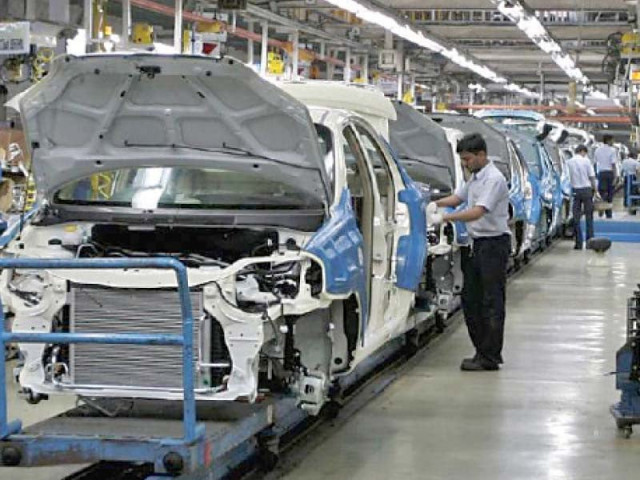Auto experts split on “Year of Localisation” in 2024
Some push for local focus, others call for embracing global integration

As the automotive industry reflects on the challenges of 2023, opinions among auto experts diverge on whether 2024 should be designated as the “Year of Localisation” for sustainability. While some advocate for a collective commitment from Original Equipment Manufacturers (OEMs) to invest in local production and technology, others argue for a more globally integrated approach.
Speaking to The Express Tribune, Auto Sector Expert and Director of Mehran Commercial Enterprises, Mashood Khan, supports the idea of localisation, stressing its role in future-proofing businesses and aligning with global trends toward sustainability. Khan believes that making 2024 a pivotal year for the automotive sector, centred on localisation, will not only insulate the industry from external shocks but also position it as a significant player in the international market.
“In embracing localisation, we not only future-proof our businesses but also align with the global shift towards sustainable and resilient practices. Let’s make 2024 a defining chapter for the automotive sector—a year where localisation becomes the bedrock of our industry’s sustainability,” asserted Khan.
He underscored that localisation is more than just production—it involves creating cost-effective solutions that resonate with consumers. By reducing dependency on imported components, the industry can navigate economic fluctuations, ensuring stable and reasonable prices. Moreover, he contends that localisation strengthens the industry’s capacity to weather global disruptions and contribute to the development of a robust, self-sustaining ecosystem.
Read Auto industry eyes 2024 recovery
On the contrary, researcher and analyst Aadil Nakhoda voiced scepticism about localisation and inward-looking policies. Nakhoda advocates for embracing competition and enhancing integration with global and regional trade networks. He cautions against declaring a specific year for localisation, expressing concerns about the potential damage to productive capabilities resulting from a focus on localisation and import substitution. He advocates investing in improving the quality and productivity of producers by making them more competitive, regionally and globally
“It is not localisation that enhances industries’ capacities, but the ability to build resilient global and regional supply networks that strengthens supply chains,” stated Nakhoda.
“We must prioritise the needs of consumers and end-users in our approach. Instead of focusing solely on localisation, our strategy should revolve around enhancing the capabilities of our manufacturers, enabling them to play integral roles in global and regional value chains. Achieving this objective demands substantial investments in their capabilities and establishing stronger connections with other regional and global stakeholders. Promoting increased competition within the industry is vital, as it serves as a catalyst for innovation, fostering industrial growth," he stressed.
Published in The Express Tribune, January 23rd, 2024.
Like Business on Facebook, follow @TribuneBiz on Twitter to stay informed and join in the conversation.



















COMMENTS
Comments are moderated and generally will be posted if they are on-topic and not abusive.
For more information, please see our Comments FAQ